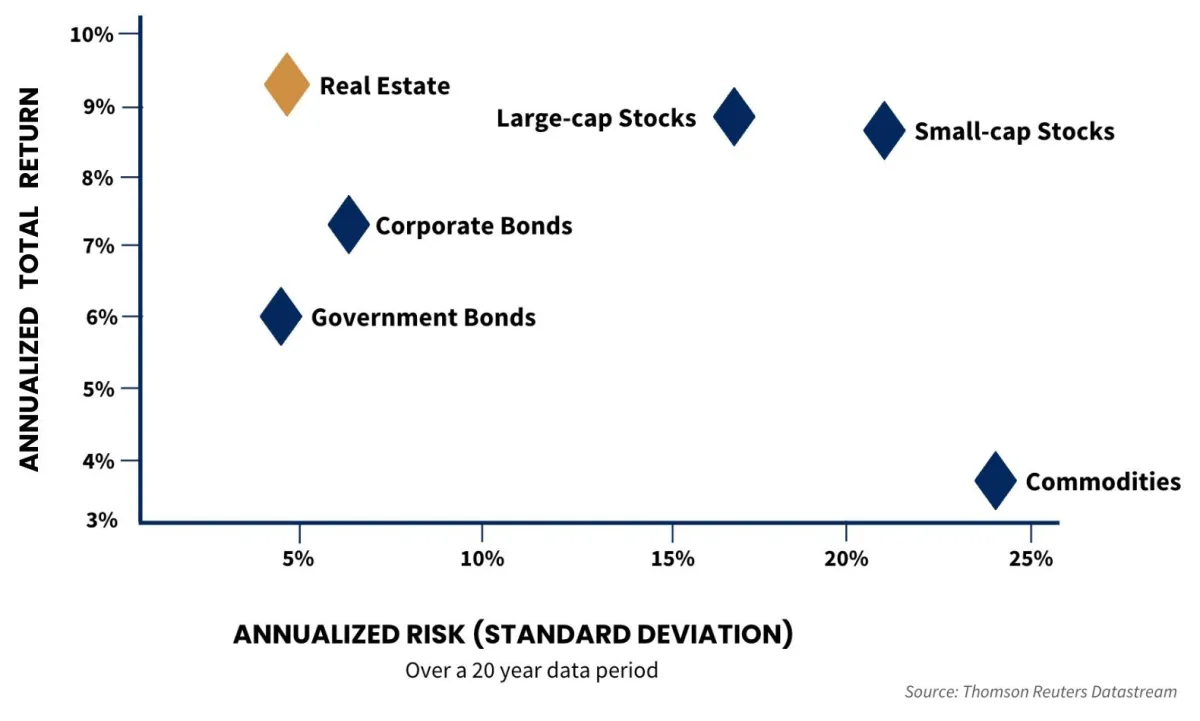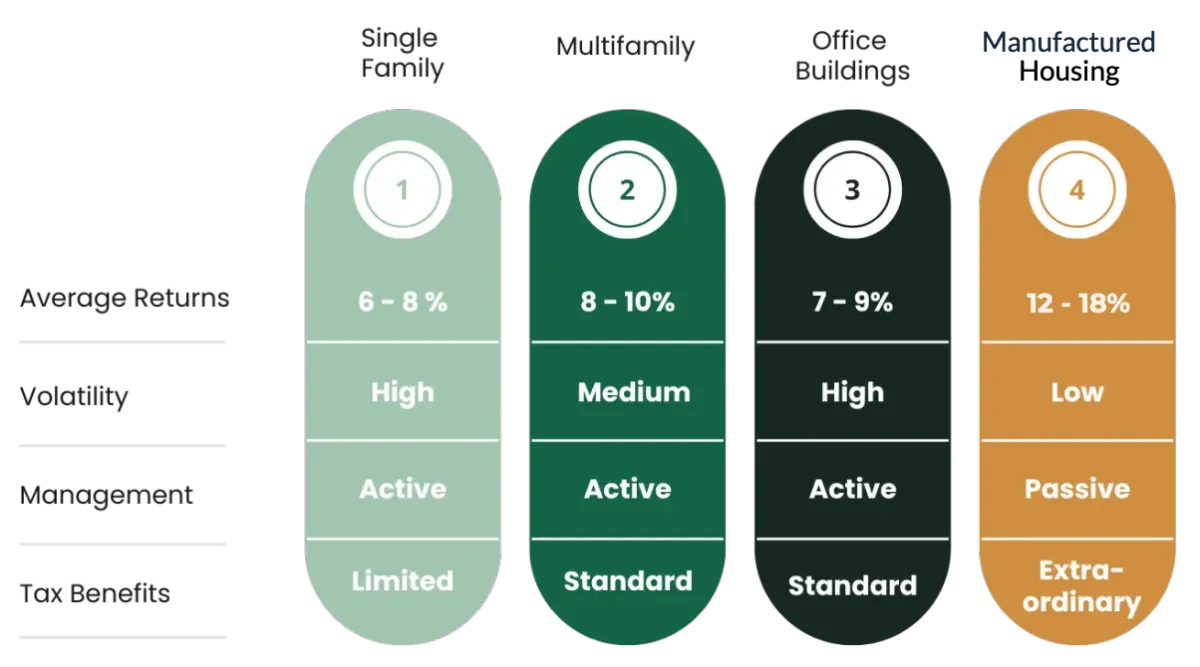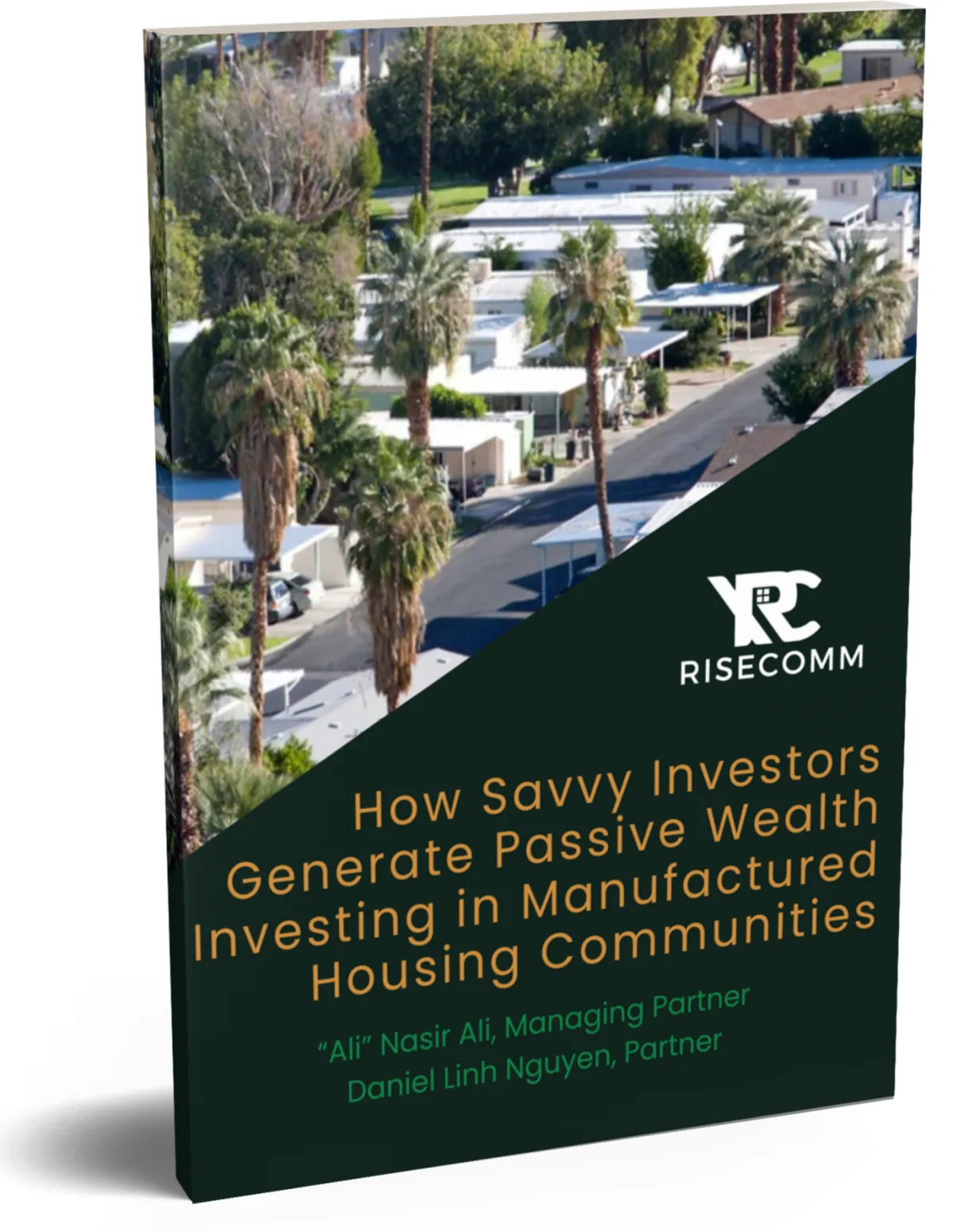
Free Report Reveals What Wall Street Hides
How Investors Generate Passive Wealth Investing in Manufactured Housing Communities (MHCs) While Reducing Portfolio Risk
Discover the recession-resistant asset class that crushed stocks, bonds, and traditional real estate for 30+ years. Zero management. Extraordinary tax breaks.
19.3%
Target Net IRR
2.0x
Target Equity Multiple
8%
Preferred Return
Traditional Investments Are Bleeding Money
The traditional portfolio is under siege. While stocks deliver strong returns, they come with punishing volatility that creates dramatic swings.
Bonds offer stability but have consistently underperformed inflation, quietly eroding purchasing power.
This leaves investors trapped between two poor options: endure the stress of market turbulence or watch their wealth slowly diminish.
The conventional stock-bond approach that once worked reliably now fails to provide either adequate growth or true protection.
Today’s investment landscape demands new strategies that can navigate both market volatility and inflationary pressures while actually preserving real wealth.
Asset Class Risk vs Reward


Market Volatility Crisis
Stock portfolios swing 30% annually. Your retirement security vanishes overnight. Stress levels spike with every market open.

Active Management Nightmare
Single-family rentals demand constant attention. Midnight tenant calls. Repair bills that crush cash flow. Vacancy periods that eat profits.

Interest Rate Massacre
Rising rates are destroying traditional real estate. Cash flow evaporates. Appreciation dies. Your equity bleeds out.

Tax Devastation
The IRS claims up to 37% of your gains. Municipal bonds pay 3% while inflation runs 6%. You're moving backwards every year.

Passive Income Lie
Most "passive" investments require active oversight. Research. Management. Stress. The opposite of wealth building.
MHCs have delivered positive returns every single year for three decades.
The $100 Billion Secret Used By Ultra-Wealthy Investors

12-18% Projected Annual Returns with Lower Risk
Generate consistent double-digit returns whle stocks crash and bonds pay nothing. MHCs outperformed every real estate sector for decades.

Recession-Proof Money Machine
Economic downturns increase demand for affordable housing. Your investment thrives while others collapse. Ultimate hedge against uncertainty.

100% Bonus Depreciation Tax Write-Off in Year One
The One Big Beautiful Bill Act gives manufactured housing investors extraordinary benefits with the potential to eliminate taxes on your returns completely.

Minimal Management Headaches
No tenant calls. No repairs. No vacancies,. Professional management handles everything while you collect quarterly checks.

Inflation Crusher
Rents rise with inflation. Your income grows while fixed mortgages get cheaper. Perfect protection against currency debasement.
12-18%
Industry Average Annual Returns (actual returns may vary)
<5%
Tenant Turnover
(vs. 50% for apartments)
35-45%
Operating Expenses
(vs. 60% for multifamily)
$20,000+
Relocation Cost
(they never leave)
Why Billionaires Call This 'The Perfect Investment'
Residents are "Sticky"
Relocating a home is a significant expense, which is one of the key drivers of long-term resident stability. Costs vary depending on the size of the home. Here are average relocation expenses for California, where all but one of our communities are located:
• Single‑wide: typically $15,000–$25,000
• Double‑wide: typically $25,000–$40,000
• Triple‑wide: generally $45,000–$60,000
These figures include teardown, transportation, and full setup. Given this high barrier to moving, once residents settle into a community, they tend to stay for 20 years or more—creating what is often called the ultimate “sticky” income stream.
"Trailer parks are the best real estate investment that has ever existed. High barriers to entry, solid demographics, a tenant base that remains with you for life, and tiny capex requirements."
Sam Zell
$5.5 Billion Net Worth

Government-Created Monopoly
Zoning laws make new MHCs illegal. Artificial scarcity drives values through the roof.

Recession Rocket Fuel
Economic downturns increase demand for affordable housing. While luxury crashes, MHCs see waiting lists.

Operational Gold Mine
Tenants own their homes. You rent the land. Lower expenses, higher margins, minimal maintenance.

Value-Add Jackpot
Most communities owned by aging operators who haven't raised rents in decades. Strategic improvements may double values in 24 months.
MHCs vs Other Real Estate Investments
Manufactured housing communities (MHCs) are also commonly referred to as mobile home parks (MHPs). The abbreviations MHC and MHP are often used interchangeably within the industry to describe the same type of property.

What Smart Investors Ask Before They Invest
Aren't MHCs risky?
MHCshad the lowest risk of any real estate sector during 2008. While everything else crashed, they kept paying. Essential housing never goes out of style.
I don't know this market.
Perfect. That's why you need professional management with 30+ years of experience. You get institutional expertise without becoming an expert yourself.
What about getting my money out?
These are typically 5-7 year investments. The superior returns and tax benefits more than compensate for illiquidity. You're building generational wealth, not day-trading.
How do I know the estimated 12-18% returns are real?
MHCs outperformed every real estate sector for three decades. With approximately 8% of the U.S. population living in manufactured homes and virtually no new communities being built, the math only gets better.
Benefits of Investing in Value-Add MHC's

Capital Appreciation
As the property appreciates via physical and operational improvements, equity can be unlocked by refinancing or selling at a higher valuation from the purchase price.

Tax Advantages
Enjoy the potential for tax advantages such as accelerated depreciation, passive income tax treatment, long-term capital gains rates, and self-directed IRA investing.

Cash Distributions
After the value-add improvements rents can be raised which increases monthly cash flow.

Leverage
Leverage our vast experience, financial sponsorship strength, and capital aggregation to invest in otherwise unobtainable MHC's with high returns.

Diversification
MHC properties can provide a balance to traditional investments such as stocks, bonds, mutual funds, and CDs.

Recession & Inflation Resistant
Regardless of the economy, people still need a place to live. MHC's have done historically well in past recessions and in periods of high inflation.
Get the Investment Report That's Changing Lives


Copyright © 2025 RiseCOMM
All Rights Reserved
This website is for informational purposes only and does not constitute an offer to sell, a solicitation to buy, or a recommendation for any securities, nor does it constitute investment advice. All information contained herein is based on sources we believe to be reliable but is not guaranteed as to accuracy or completeness. Investing in securities involves risk, including the risk of loss. Past performance is not indicative of future results. Any forward-looking statements or projections are subject to risks and uncertainties that could cause actual results to differ materially from those anticipated. If you are interested in investing, please request Offering Materials from the sender. The securities discussed may not be suitable for all investors, and we encourage you to consult with your financial advisor before making any investment decisions.